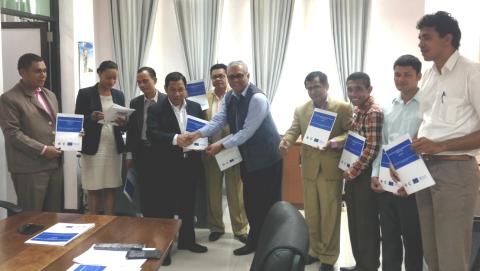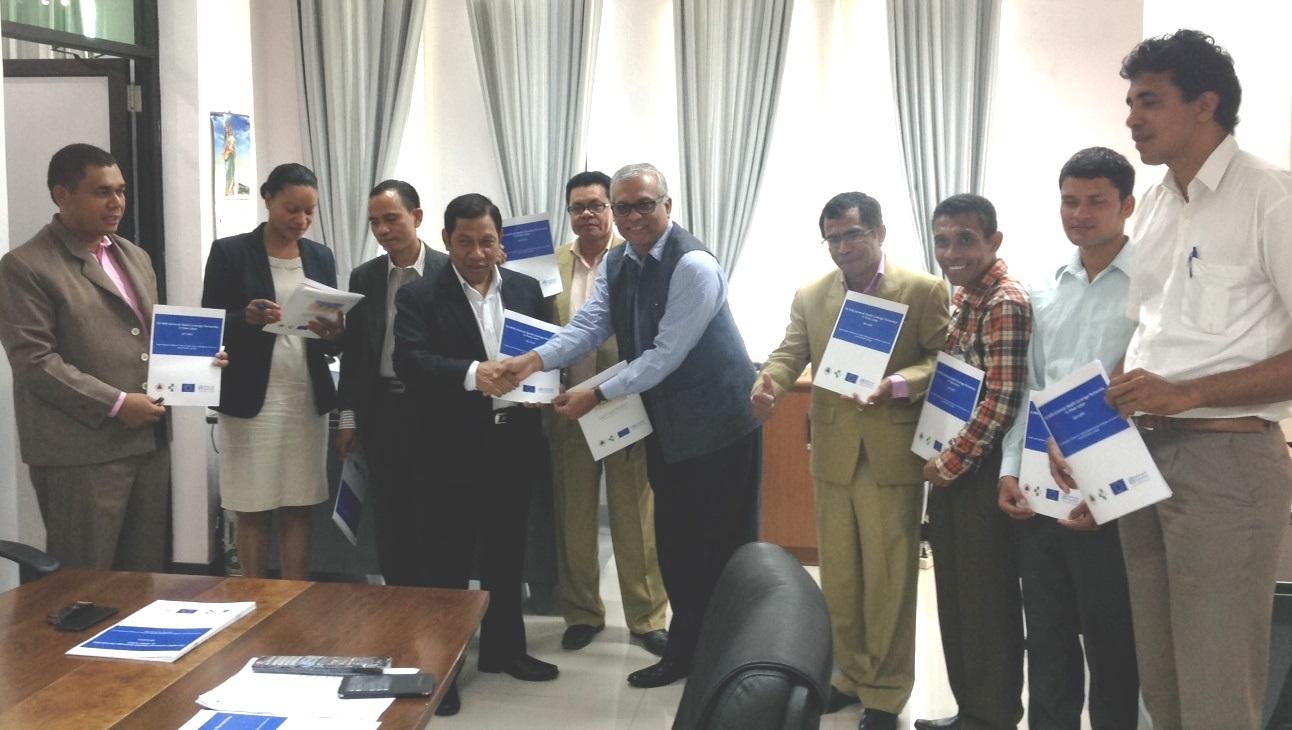
In 2013, a three year Programme started in Timor-Leste under the EU-WHO Universal Health Coverage Partnership. The aim of this Programme is to improve the quality and accessibility of healthcare for the people of Timor-Leste through promoting policy dialogue in key areas: development of national health policies; health systems financing for universal health coverage; supply and use of medication; human resources for health; community participation, inter-sectoral coordination and harmonization/alignment of international cooperation for health.
Timor-Leste is classified as a fragile state. During the violence that followed the vote for independence, the majority of health infrastructure and services was destroyed and has since been rebuilt. The country has made steady progress over the last decade through reconstructing health facilities, expanding community based health services, and bolstering the number of health care workers with assistance and cooperation from the Cuban Medical Brigade.
Timor-Leste has a small population of approximately 1.1 million people, with over 70% living in rural areas isolated by mountainous terrain and poor road conditions, where access to health services remains a challenge. The public health system is decentralized, and at the district level, primary health care is provided through a network of Community Health Centres, Health Posts and Sistema Integradu Saude Communitaria (SISCa) or “integrated community health services” in 474 locations for populations residing in areas that lack access to health services. This program establishes temporary fixed posts at locations more distant from health facilities for provision of a Ministry of Health-approved Basic Services Package (BSP). Despite this progress, universal health coverage is yet to be achieved, particularly in remote and rural areas. This is reflected in a high maternal mortality ratio (557 per 1000 live births) and under 5 child mortality (64/1000 live births).
The EU-WHO Universal Health Coverage Partnership in Timor-Leste operates against this background by strengthening national policies, standards, capacity building of human resources, inter-sectoral coordination and harmonization/alignment of international cooperation for health. It is in line with government plans set out within the National Health Sector Strategic Plan (NHSSP) 2011-2030, which provides a 20 year vision for health based on the National Strategic Development Plan 2011-2030. The NHSSP lays a vision towards a “Healthy East Timorese People in a Healthy Timor-Leste.”
The Programme, since its inception, has supported the Ministry of Health to develop several national strategies: the National Strategy for the Prevention and Control of Non-Communicable Diseases (NCDs), Injuries, Disabilities and Care of the Elderly and NCD National Action Plan 2014 – 2018; the Reproductive Maternal Neo-Natal Child Adolescent Health (RMNCAH) Strategy2014-2018; and the National Strategic Plan for School Health (2014-2018).
Health Planning and Budgeting Guidelines have been developed that will reflect the overall NHSSP objective to ensure a central Ministry of Health role as policy maker and regulator of the health system, with the district taking on the implementation role of planning, supervising, coordination, and monitoring and evaluation of services in response to national priorities and community needs. The first National Health Accounts workshop was held in 2013 and the development of Annual Health Sector Plans took place, in collaboration with WHO and other partners. National health sector coordination was strengthened to ensure role clarity and coordination among development partners and relevant government counterparts.
The support under the EU-WHO Universal Health Coverage Partnership has been recognised and appreciated by the Ministry of Health. In the Sixty-sixth Session of the Regional Committee held from 11 – 13 September 2013 at the WHO South-East Asia Regional Office in New Delhi, officials from the Ministry of Health made interventions on various topics on the agenda, while referring to the support being provided through the EU-WHO Universal Health Coverage Partnership.
During his address at the Sixty-seventh session of the World Health Assembly in Geneva, May 2014, the Honorable Minister of Health of Timor-Leste, Dr. Sergio Lobo, Spb. acknowledged the contribution and importance of the EU-WHO Universal Health Coverage Partnership, stating that “Timor-Leste is now focusing on health systems strengthening to ensure universal access to promotive, preventive, curative and rehabilitative health services. This requires development and implementation of robust national health policies, strategies and plans. The Ministry of Health, through the support of the EU-WHO Universal Health Coverage Partnership, will ensure that international and national stakeholders are increasingly aligned around the National Health Sector Strategic Plan and adhere to other aid effectiveness principles. It will also focus on improvement of technical and institutional capacities for policy, planning and health financing.”
